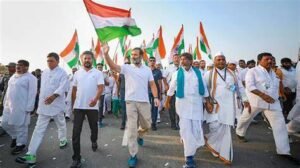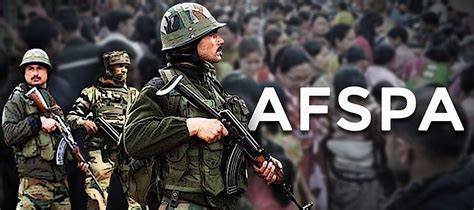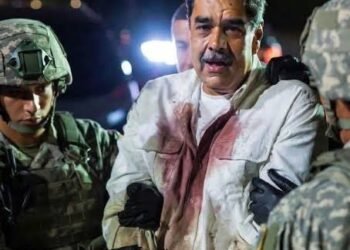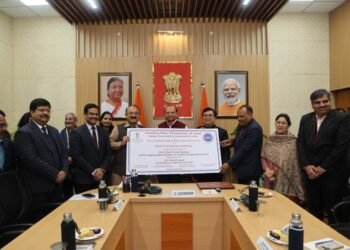Two decades after Chittaranjan’s fiery protest, Manipuri youth continue to resist AFSPA — recalling custodial killings, disappearances, and military impunity while demanding dignity and democracy.
BY PC Bureau
August 16, 2025 — On a humid monsoon afternoon, the usually bustling International Airport Road in Imphal fell into a solemn hush. Hundreds of young people, most of them students, walked in silence. No slogans, no raised fists — only banners, placards, and flowers in hand. This was not just another protest; it was a memorial, a reaffirmation of memory and defiance.
The silent rally, organized by the Manipuri Students’ Federation (MSF), marked the 21st death anniversary of Pebam Chittaranjan Mangang — the student leader who, in 2004, set himself ablaze to protest the Armed Forces (Special Powers) Act (AFSPA). His act of desperation, born of outrage at systemic violence and impunity, has since become a touchstone of Manipur’s resistance against a law many call the “Black Act.”
Starting at Keishampat, the rally moved steadily through Imphal’s streets before concluding at Imphal College, near the airport. Participants, dressed in muted colors, carried banners demanding “Repeal AFSPA” and “Justice for Manipur.”
READ: Rahul’s Vote Adhikar Yatra to Cover 25 Districts, 50 Seats
In August 2004, following the custodial killing of Thangjam Manorama by security forces, anger swept through Manipur. Women stripped in front of Kangla Fort, students poured into the streets, and civil society erupted in protest. On Independence Day that year, Chittaranjan — then a 28-year-old advisor to the MSF — doused himself in petrol and lit a match, crying out against AFSPA. He succumbed to his burns the next day, August 16. His death seared itself into the collective consciousness of Manipur, ensuring that every anniversary would be marked not just with mourning but with renewed resolve.
Enacted in 1958, AFSPA grants sweeping powers to the armed forces in “disturbed areas” — powers to shoot on suspicion, arrest without warrants, and enjoy immunity from prosecution. Imposed across Manipur since 1980, the law has been blamed for widespread human rights violations: extrajudicial killings, disappearances, and arbitrary detentions.
Critics argue AFSPA has normalized impunity, turning citizens into suspects in their own homeland. Defenders claim it is necessary to combat insurgency. This tug-of-war has lasted decades, but for Manipuris, the scars are lived reality.
Why AFSPA Persists
Yet, there is another reality that complicates the demand for repeal. Manipur remains a deeply fragile state. Ethnic violence in the past two years has claimed more than 200 lives, displacing tens of thousands. Armed groups — Meitei, Kuki, Naga, and others — continue to operate, many with sophisticated weapons.
The region is also a key corridor in the “Golden Triangle” drug trade, fueling addiction, crime, and corruption. Extortion is rampant, with insurgent groups collecting “taxes” from businesses, transporters, and even ordinary families. On national days, militant outfits continue to call for boycotts of Independence Day and Republic Day, enforcing them with fear.
For the government, this volatile mix makes AFSPA less a choice than a necessity. Security forces argue the law provides a legal shield to operate in a terrain where militants often blur into the civilian population. Without AFSPA, they contend, counter-insurgency would be impossible.
A Law Partially Lifted, but Not Gone
AFSPA was partially lifted in 19 police station areas between 2022 and 2023, but it remains in force in several districts and six police station areas around Imphal — Sekmai, Lamsang, Lamlai, Porompat, Heingang, and Irilbung. The state government extended it again in late 2024, citing ongoing violence.
This selective withdrawal reflects the uneasy balance: acknowledging public resentment while conceding that law and order remain too fragile for a complete repeal.
The struggle over AFSPA in Manipur has no quick resolution. For many in Delhi, the law remains indispensable to keeping insurgency at bay. For many in Imphal, it represents the denial of democracy’s most basic promises.
READ: Kishtwar Cloudburst: 60 Dead, Families Wait for 75 Still Missing
On August 16, 2025, the students of Manipur walked in silence, but their silence spoke volumes. It carried the memory of Pebam Chittaranjan’s burning protest, the cries of Manorama’s family, the resilience of countless victims, and the enduring demand for justice.
The silent rally also underscored a sobering truth: in Manipur, peace is fragile, insurgency is alive, and AFSPA continues to straddle the uneasy line between security and liberty.













